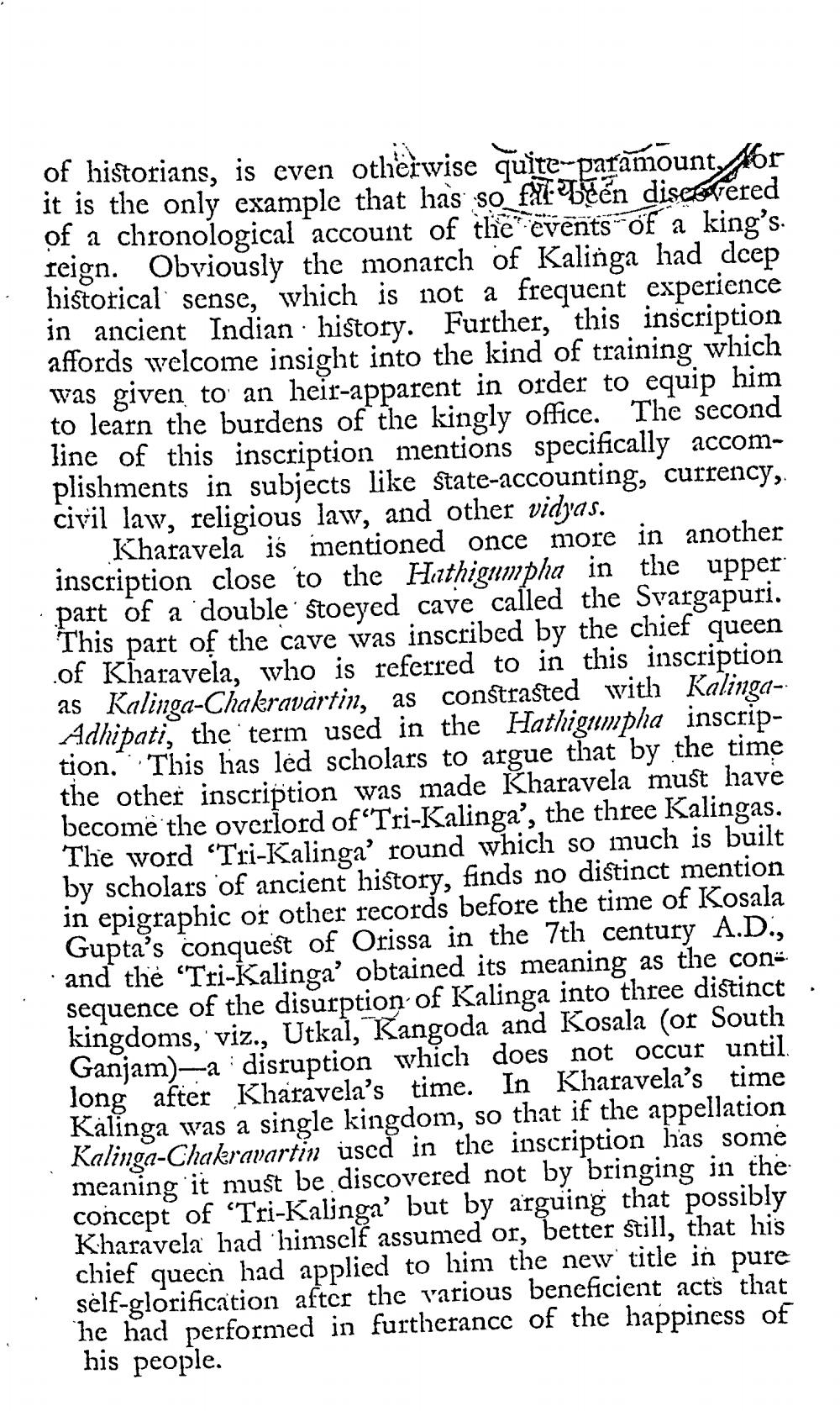________________
of historians, is even otherwise quite-paramount for it is the only example that has so far been discovered of a chronological account of the events of a king's. reign. Obviously the monarch of Kalinga had dcep historical sense, which is not a frequent experience in ancient Indian history. Further, this inscription affords welcome insight into the kind of training which was given to an heir-apparent in order to equip him to learn the burdens of the kingly office. The second line of this inscription mentions specifically accomplishments in subjects like state-accounting, currency, civil law, religious law, and other vidyas.
Kharavela is mentioned once more in another inscription close to the Huthigumpha in the upper · part of a double stoeyed cave called the Svargapuri.
This part of the cave was inscribed by the chief queen of Kharavela, who is referred to in this inscription as Kalinga-Chakravartin, as constrasted with KalingaAdhipati, the term used in the Hathigumpha inscription. This has led scholars to argue that by the time the other inscription was made Kharavela must have become the overlord of‘Tri-Kalinga', the three Kalingas. The word "Tri-Kalinga' round which so much is built by scholars of ancient history, finds no distinct mention in epigraphic or other records before the time of Kosala Gupta's conquest of Orissa in the 7th century A.D., · and the “Tri-Kalinga' obtained its meaning as the consequence of the disurption of Kalinga into three distinct . kingdoms, viz., Utkal, Kangoda and Kosala (or South Ganjam)-a disruption which does not occur until. long after Kharavela's time. In Kharavela's time Kalinga was a single kingdom, so that if the appellation Kalinga-Chakravartin used in the inscription has some meaning it must be discovered not by bringing in the concept of 'Tri-Kalinga' but by arguing that possibly Kharavela had himself assumed or, better still, that his chief queen had applied to him the new title in pure self-glorification after the various beneficient acts that he had performed in furtherance of the happiness of his people.




